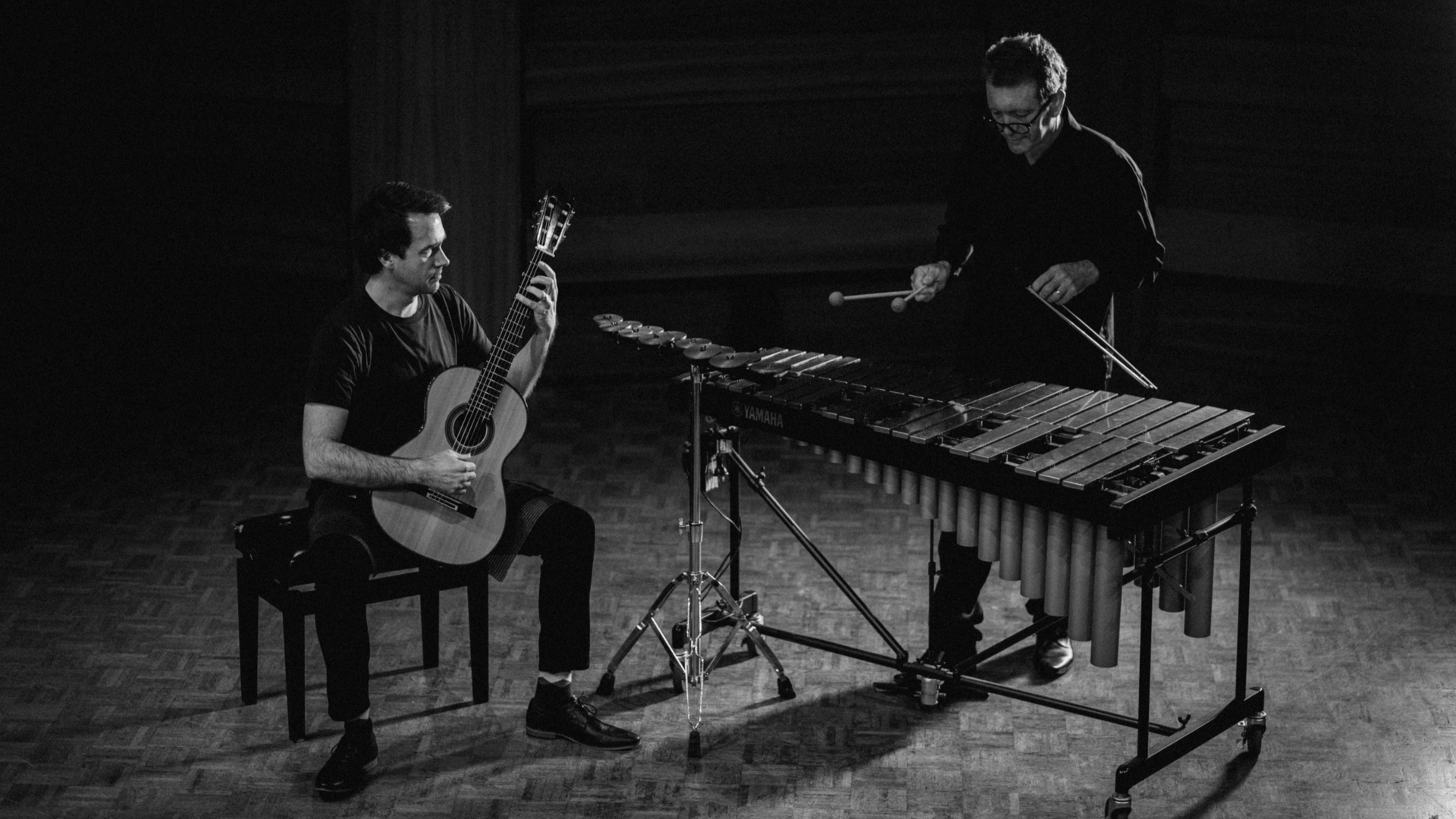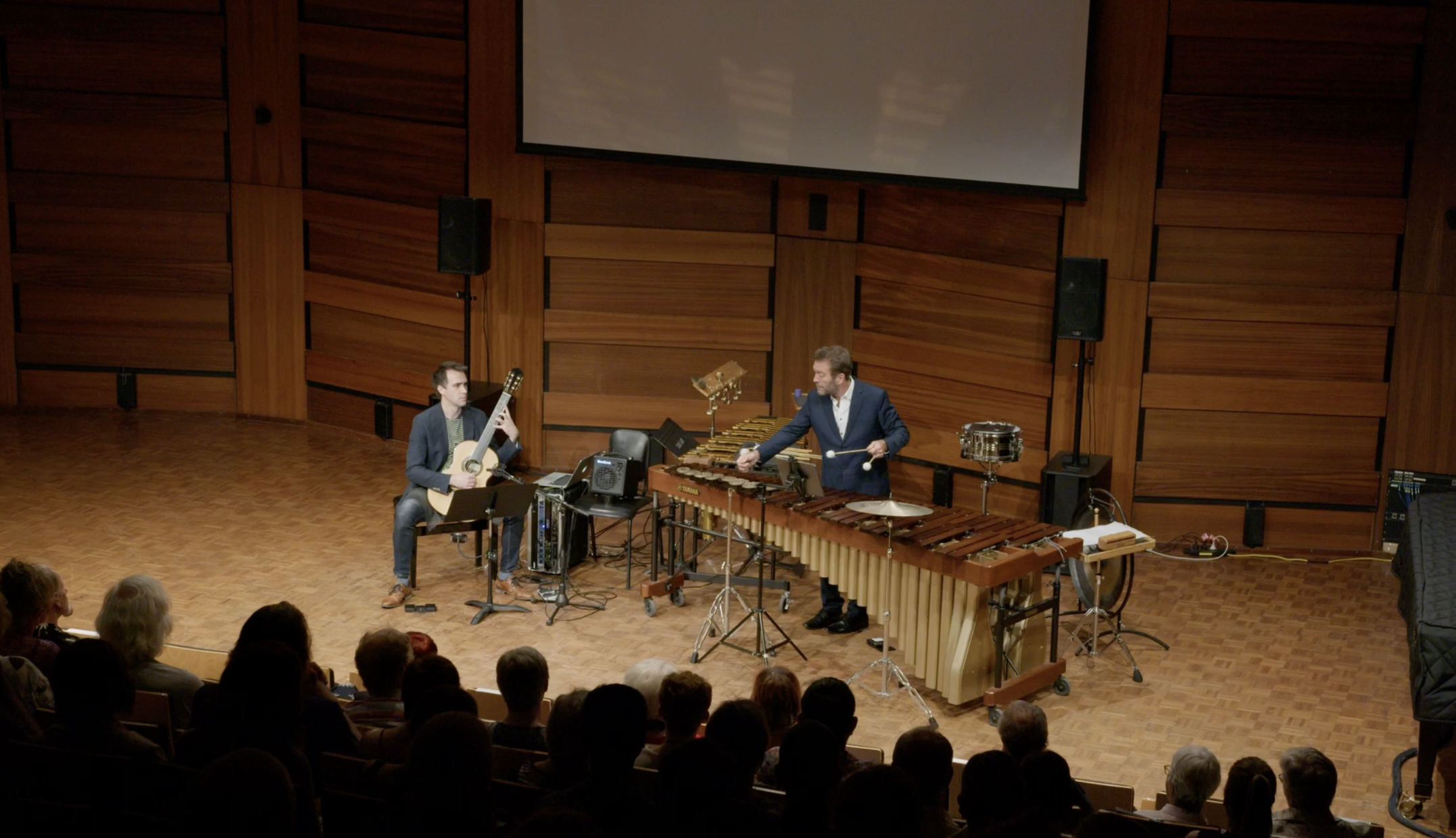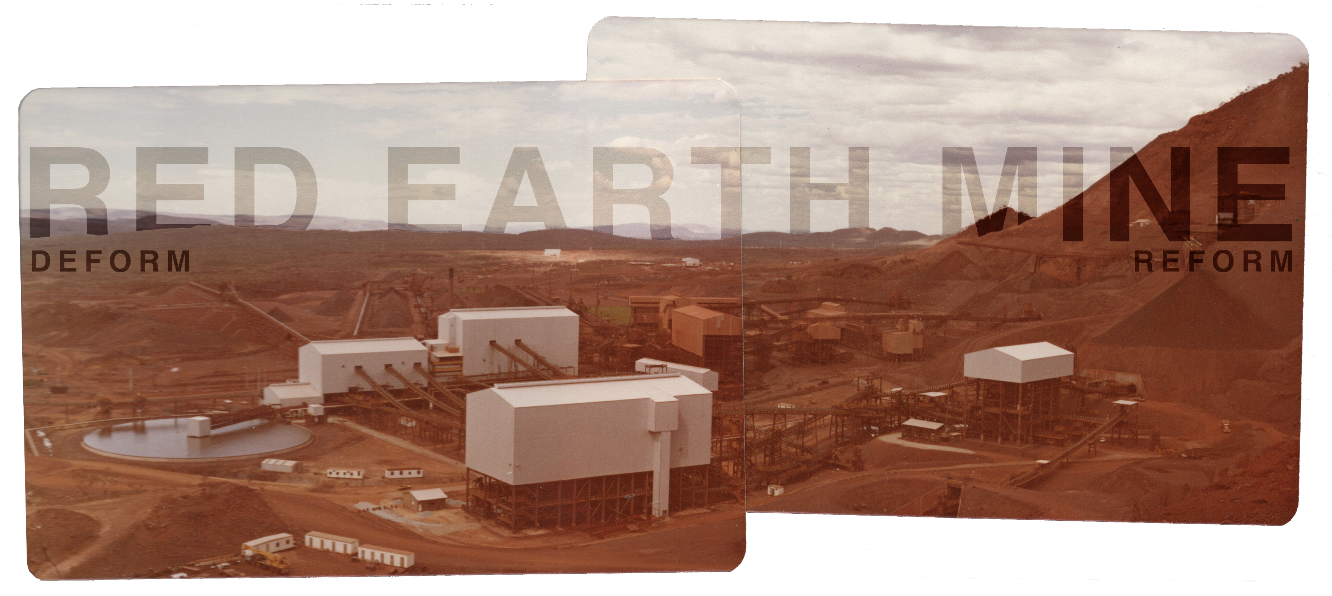
"Tanner and Fitzgerald, virtuosos in their craft, deliver an unforgettable experience"
-FringeFeed Critic Review

Ascendent Messages is a commissioning project aimed at expanding the repertoire for classical guitar & percussion, and pushing the boundaries of the genre. Supported by a grant from the Department of Local Government, Sport and Cultural Industries, four new works were commissioned from award-winning Australian composers Kate Milligan, Alice Humphries, Maria Grenfell and Kathy Potter. The works were premiered in a concert presented as part of the Fringe World Festival on 8 February 2025, and are being recorded for commercial release in late 2025.
The performance received critical acclaim from multiple media outlets, earning a 5/5-star review from FringeFeed, which praised the concert as an “unforgettable experience” delivered by “virtuosos in their craft.” X-Press Magazine hailed it as a “magnificent show” that “pushes the boundaries of guitar and percussion to create a new and haunting sonic landscape and reflect on our complex world.”
About the Works
ascendent messages (2024) - Alice Humphries
Ascendant Messages explores the ways trees communicate—both through underground mycorrhizal networks and by releasing chemical signals into the air—and considers how humans might receive messages from the earth. This piece imagines messages received, sometimes subconsciously, from these deep networks being gathered into our root systems and ascending through us and out into the world.
Red Earth Mine (2024) - Kate Milligan
Red Earth Mine is a soundscape for the iron ore mining industry in deep time. In the first movement, Deform, material is repeated with stubborn insistence, and subject to a gradual extraction process—a musical metaphor for the extraction industry. As the work progresses the performers must negotiate dwindling resources, for example as the range shortens, physically constricting both the guitarist and percussionist in their upper registers. As the acoustic material degrades, so does the electronic material, which is made up of an archival recording of a mine blast.

In the second movement, a graphic score entitled Reform, the same musical material is rearranged in structured improvisation, freed from the rigid extraction processes. The work ends as a speculative sound-world for this landscape in the deep future—what will happen to the red earth over deep timescales, long after human activity has ceased?
Red Earth Mine draws on familial knowledge of the extraction industry in the north of Western Australia, as both my father and grandfather worked on iron ore mines (Mount Tom Price and Paraburdoo) as engineers in the latter half of last century. The impetus for this work came from conversations with my father especially, who has spent his career subsequently campaigning for a green energy industry. We reflected on the tremendous scale of human impact upon the landscape, the beauty in engineering processes, the politics of land ownership as it translates to profit (and the ongoing violence enacted upon our First Nations communities), and the ubiquity of the energy industry as it underpins all our lives. This piece is dedicated to my father, a man who understands that sustainability is measured in deep time.
Promenade (2024) - Maria Grenfell
Promenade for guitar and percussion explores the idea of instruments moving along together at several different speeds. The first movement, Perambulation, has the players perambulating, or strolling. The second movement is an Interlude, with free rubato and conversational tempo, and the third movement is a presto Perpetual Motion, with a nod to French composer Claude Bolling.
Space Junk (2024) - Kathy Potter
For a composer, self criticism can be debilitating; experienced during the process of writing Space Junk, however, it was a source of inspiration. Will my piece just exist as a piece of musical debris in the orbit of streaming services? Will I be a liability to the performers’ project, my musical offering simply, well, junk? Thoughts of unwanted pieces of satellites whizzing around indefinitely ensued.
Rather than spiralling into some sort of musical existential crisis, I was able to fashion these doubts into something useful - something that could inform how I treated thematic material. This involved starting with a musical idea (akin to an object going into orbit), followed by development/decay/fragmentation (as the object breaks down in orbit, perhaps into unrecognisable portions of debris), followed by another musical idea suddenly appearing (new object appearing). The final, lengthy section of Space Junk is a passacaglia: a bass line is introduced by the guitar and bowed vibraphone which is then repeated many, many times - the Earth in constant rotation on its axis. Along with figures that reinforce the harmonic progression atop this bass line are reintroductions of musical ‘debris’ from the previous sections that’s still ‘floating around’. The piece ends with one of these reemergent figures in the guitar, a somewhat ill-fitting remnant proclaiming that debris can be, well, interesting.